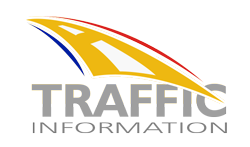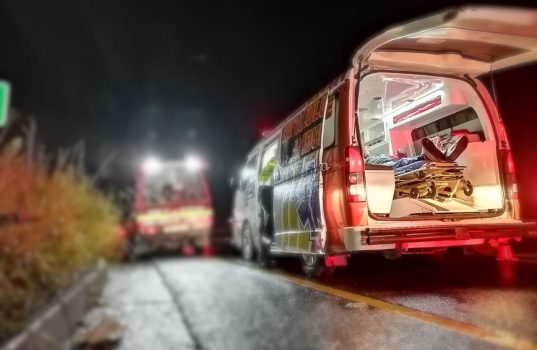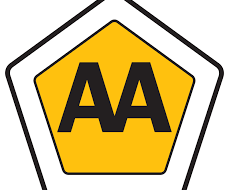The equivalent of 30 jumbo jets crash in South Africa every year
Tuesday 29 October 2019: President of the South African Road Federation (SARF), Saied Solomons, has called for a nation-building programme that underscores road behaviour and which is coordinated to reach into the heart of every enforcement area across South Africa. “All road stakeholders need to collaborate and accountability needs to be upheld at every level – from road users to officials and right through the reporting lines in road and traffic authorities,” he said. Solomons was speaking at the Federation’s Transport Month event held in Pretoria last week.
“Statistics are not lacking when it comes to the carnage on our roads – the figures translate to over 30 jumbo jet crashes across our country every year. We have initiatives that run at national, regional and local government level to address the scourge of road crashes. However, they are not sufficiently integrated, and we are not moving closer to reaching any of our road safety targets, many of which are aligned to international targets as set out in the Sustainable Development Goals.
“The National Road Safety Strategy launched in 2017 remains a document that pays lip service to change the behaviour and attitude of road users by 2030. Nearly four years into this plan, lawless still rule our roads and not the law. It is not guiding or driving implementation of the strategy across the road system,” said Solomons.
Solomons believes that pockets of excellent work are taking place around road safety, but he says organisations and authorities are working in silos which diminishes the impact of their programmes.
“In 21st Century SA, technology can be far better used to help plan, implement, manage and monitor road safety efforts at local, regional and national levels.
“The Road Accident Fund remains largely a reactive mechanism funded by road users at the fuel tanks and then handed out after the carnage. This levy should rather be proactively promoting and deepening enforcement to influence driver behaviour.
“Driver behaviour must be addressed through positive incentives for drivers as opposed only penalties, while officials need to be properly rewarded for their hard work in enforcing the law on our roads.”
According to the World Health Organisation, road traffic injuries are estimated to be the eighth leading cause of death globally. “The issue is not unique to South Africa,” said Solomons, “But our statistics are. In SA, the cost of crashes amounts to 3.5% of GDP whereas, in the United Kingdom, road crashes makeup 1.7% of GDP and in the United States 1.8%.”
Drink driving, speed, seat belts and child restraints
The SA Road Federation is part of the Global Road Safety Partnership which has highlighted four key road safety initiatives that developing countries should concentrate on, namely, drink driving, speed, seat belts and child restraints.
Solomons said, “If we could address these four issues across all three tiers of government agencies dealing with law enforcement on our roads, we will be taking a big step forward in reducing fatalities.”
The Global Road Safety Partnership has shown that a 5% reduction in speed reduces crashes by 30% and emphasises that setting and enforcing speed limits as one of the most effective measures in reducing road crashes. It reports that drivers with a blood alcohol concentration of between 0.02 and 0.05 grams/decilitre have at least a three times greater risk of dying in a crash. It also reveals that wearing a seatbelt reduces the risk of a fatality among drivers and front-seat occupants by 45-50% while the use of correctly fitted child restraints appropriate for a child’s size and weight significantly reduces death or injury.
“As part of this Partnership, we advocate widespread, consistent and highly visible law enforcement to send a clear message to drivers that speeding will not be tolerated. Similarly, we advocate widespread random breath testing as frequently as possible and especially around bars and restaurants.
“Effective enforcement of seat belt laws must take place and correctly fitted and appropriate child restraints in vehicles are non-negotiable: those who are non-compliant must be penalised,” said Solomons.
Solomons added that 38% of fatalities on our roads are pedestrians, who are vulnerable road users. “To reduce pedestrian fatalities, we need to address driver behaviour, educate pedestrians, and also make sure that there are ample pedestrian walking areas, including bridges for people to move more easily, quickly and safely between work and home.”
MEC for Roads and Transport in Gauteng, Jacob Mamabolo, delivered the keynote address at the SA Road Federation event when he unpacked the role of transport in Gauteng’s economy. Mamabolo called on SA Road Federation to be the voice of roads in the country, a challenge which Solomons welcomed.
“Our work focuses on training and capacity development of road sector stakeholders, promoting road safety and ensuring our roads are adequately and fairly funded. I have no doubt that in the coming year, the SA Road Federation will rise to the challenge that the Premiere has charged us with. This has, however, been a sombre end to 2019’s Transport Month,” concluded Solomons.
Related Posts
« Sentian Aerospace wins AVI awards 2019 Minister Madikizela to open multi-million rand traffic circle in Saldanha Bay »


























